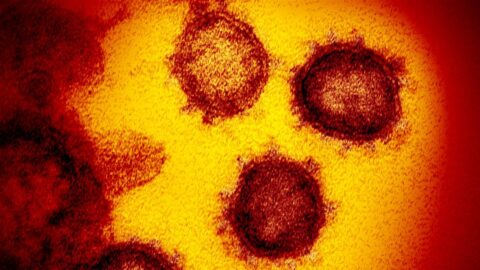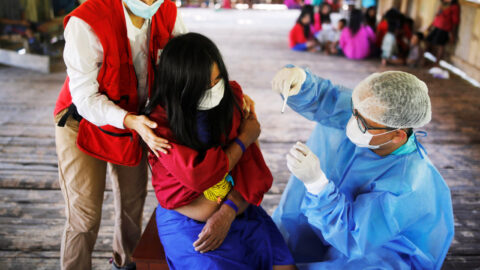Mass vaccination programs began to roll out across Europe on Sunday after several countries reported cases of a more contagious variant of the coronavirus.
On what some have dubbed “V-Day,” Germany, France, Italy, Portugal and Spain began inoculations, starting out with health care workers and those most at risk of contracting the disease.
The coordinated vaccination campaign of unprecedented scale in the European Union, home to almost 450 million people, is a crucial step in curbing the pandemic.
In Italy, the first doses of the vaccine developed by the American drugmaker Pfizer and its German partner, BioNTech, were administered to five health care workers at Rome’s Lazzaro Spallanzani National Institute for Infectious Diseases, which has been on the forefront of the fight against Covid-19 since the beginning.
“Today is finally a good day,” the country’s virus czar, Domenico Arcuri, said at a news conference. “We see the light at the end of the tunnel.”
But he warned that people should “continue to be prudent, cautious and responsible,” as Italy, which has recorded Europe’s highest number of deaths, 72,000, still has a long road ahead.
A total of 9,750 doses of the vaccine, which cleared regulatory hurdles in Europe last week, have arrived in the country to be distributed across its 20 regions, the Health Ministry said.
Altogether, the E.U.’s 27 countries have recorded nearly 15 million coronavirus infections and more than 353,000 deaths, according to Johns Hopkins University data. More than 1.7 million people have died worldwide.
Download the NBC News app for full coverage of the coronavirus outbreak
Each E.U. country will make its own decision about who gets the first shots, with most vowing to put the elderly and residents in nursing homes first.
France also started to administer the vaccine Sunday. The Social Affairs ad Health Ministry said it had ordered almost 68 million doses of the two-dose Pfizer-BioNTech vaccine from the E.U., which are to be delivered by July.
A day before the vaccination campaign officially started in Germany, a small number of people at a care home for the elderly were inoculated in the town of Halberstadt on Saturday.
Edith Kwoizalla, age 101, got the first dose.
The government plans to distribute more than 1.3 million vaccine doses to local health authorities by the end of the month, German Health Minister Jens Spahn tweeted last week.
Hungary and Slovakia began vaccinating people Saturday, a day ahead of the general European rollout, while Czech Prime Minister Andrej Babis became the first person in the country to be given the vaccine Sunday.
The first cases of a new virus variant, which British authorities said could be 70 percent more transmissible after it was discovered in the U.K., were detected in France, Ireland and Sweden over the weekend.
Fears over the new strain led China’s aviation regulator to suspend flights to and from the U.K. on Sunday until at least Jan. 10. More than 40 countries, including France, Germany, Italy, Ireland and Japan, have also restricted travel from Britain.
BioNTech has said it is confident that its vaccine works against the new U.K. variant, but it said further studies are needed.
Nancy Ing, Ann-Kathrin Pohlers, Claudio Lavanga, Reuters and The Associated Press contributed.










Recent Comments